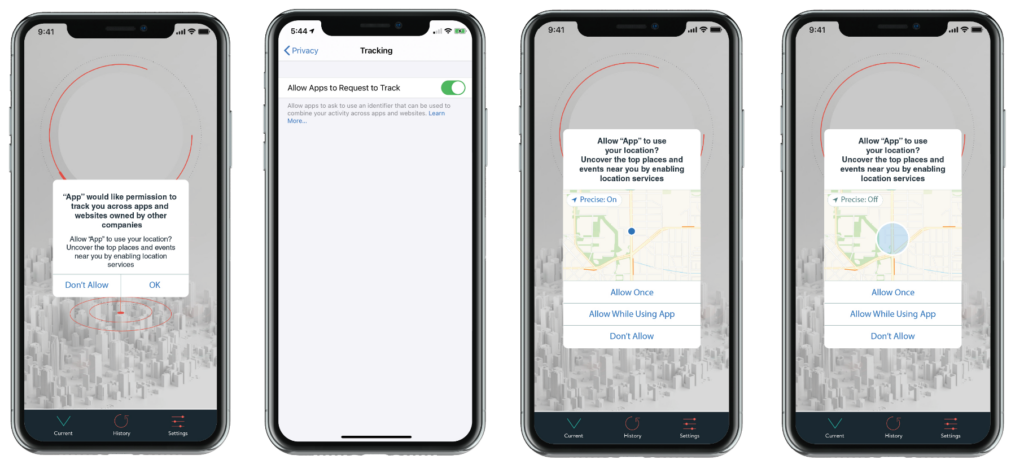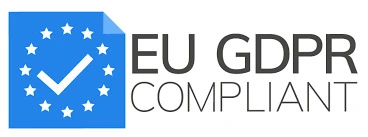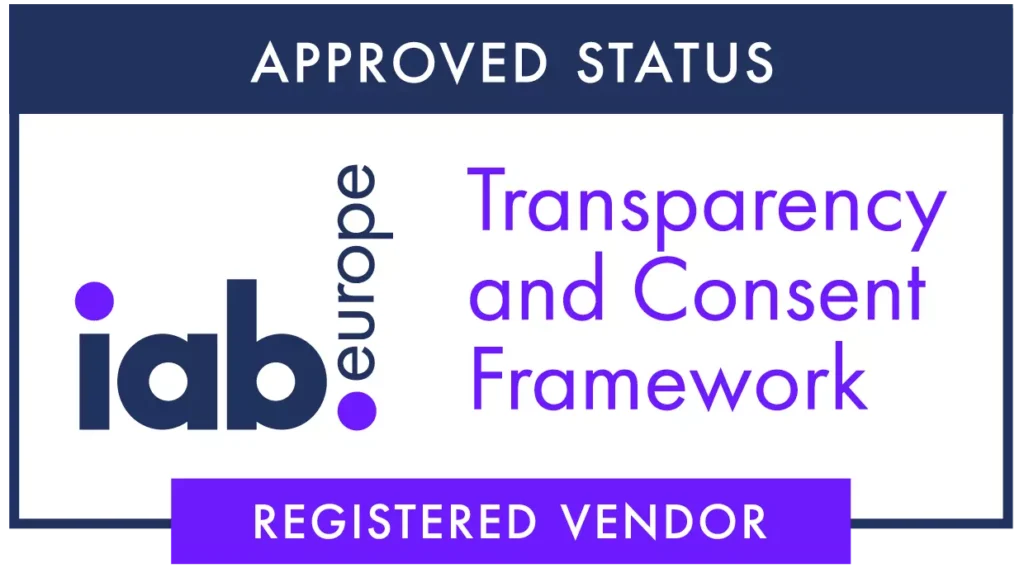Table of Contents:
- What is the ATT Framework update?
- What does the update change?
- What is IDFA and why is it important to Marketers and Advertisers?
- How is Precise Location data used by Marketers and Advertisers?
- How are Marketers and Advertisers reacting?
- Why did Apple enable this feature?
- How does Azira’s solution work post the update?
- Identity Resolution: Benefits and Importance
- PROXIMA – Azira’s Identity Graph
- Azira’s Privacy Policy Compliance
- Conclusion
Introduction
When Apple announced that the new iOS14 update would give users better control over sharing of their data, marketers and app creators around the world worried about the consequences. With this update, iOS users can now choose whether they want to allow apps to track their precise location with a new toggle and share their data or not.
This update is the latest sign that the world of data-driven marketing is about to change in a big way. Apple’s SVP Craig Frederighi in his speech at the European Data Protection and Privacy Conference described app tracking as privacy’s “biggest” challenge”.
But what exactly has the new update changed and why is everyone talking about it?
What Does the Update Change?

In short, Apple’s upcoming App Tracking Transparency (ATT) policy will require app developers to ask for permission when they track the user’s data across other apps. This will happen in the form of a pop-up box that users will see when they download any app, which would ask users to either ‘opt-in’ or out of the apps request to track them across other apps and websites. If the user chooses to not allow the app to track them, the developer then loses access to the IDFA, which is an identifier for iOS devices.
What is IDFA and why is it important to Marketers and Advertisers?
IDFA is used by marketers and advertisers in the following ways:
- IDFA is used by advertisers to recognise users in the ecosystem and send them targeted ads.
- It is used to ensure efficiency of the ad by frequency capping, optimization etc., which are important to ensure the same ad is not shown to a particular user multiple times.
- It is also used by advertisers to gain access to the iOS measurement chain which powers various kinds of attributions like multi-touch, last-view, etc. IDFA has been important for advertisers to be able to measure the impact of ads on marketing goals as well.
Like third-party cookies, IDFA enabled identity resolution and updated databases when a user performed any action on other apps and websites. IDFA was also used to measure the success of ad campaigns by advertisers on various websites. For example, if a user decides to purchase a product after watching an ad on a social media app like Instagram or Facebook, then the purchase will be attributed to the ad campaign, thanks to IDFA.
How is Precise Location Data used by Marketers and Advertisers?
Until now, brands used precise location data to pinpoint a specific device’s whereabouts and this data is aggregated to gain insight into audience behaviour and movement. Location data can be analysed to create a very detailed image of the user’s interests and behaviour, while remaining privacy compliant.
Precise location data is also extremely useful for marketers as it can aid accurate segmentation and targeting of the audience. This improves campaign accuracy and relevancy and can therefore lead to more and better leads. For example, if location data places a user in a gym, advertisers can target the user with ads for health drinks or supplements.

What are Marketers and Advertisers Saying?
To put things in perspective, the mobile ad market is worth close to $300 billion and a significant percentage of this share is now owned by Apple. If most Apple users decided to opt-out of ad tracking then the industry could be impacted significantly. Naturally, advertising giants like Facebook and sister-company Instagram are not happy with this new development. In their blogs, Facebook expressed the worry that the new update may render their Audience Network so ineffective that they might have to reconsider having it at all on iOS devices. This development could significantly impact smaller publishers and app developers that depend on Facebook’s Audience Network and in turn, would also affect users worldwide.
Companies like Facebook, Instagram and app developers have appealed against this feature roll out, worried about dropping ad revenues and Apple had agreed to delay the roll-out till early 2021.
Why did Apple enable this feature?
To answer this question, we must return to the quote from Apple’s SVP Frederighi where he said app tracking was one of the biggest threats to users’ privacy. While app tracking enables customisation of content and a better user experience, users are worried about how else this data may be used. With this update, users will be given greater transparency, control and most importantly, choice over how their data is used.
How does Azira’s solution work post Apple’s privacy update?
- IDFA Opt-In: Azira’s partner apps communicate the value consumers receive from the data they share. Azira believes most users will still be willing to share this data by consent as they know they always had the choice and the feature has just been made more visible now.
Azira has developed a new persistent identity solution, PROXIMA (U.S. Patent No. 10,979,848) which resolves the identity to a person as opposed to a device by learning from over 27 signals. Aziras patented algorithm has the capability to resolve the identity of a person even without the IDFA by synthesising all the parameters that the mobile emits which includes location information and the apps on the devices, and combining it with the deterministic data sources such as hashed email addresses.
Azira has conducted explicit tests in various geographies and was able to resolve the identities of consumers in more than 60% of occasions with at least 90% accuracy even without the presence of an identifier such as IDFA. PROXIMA ID is used as the primary identifier in Azira’s audience curation solution, Allspark, and Azira’s Real-world Data Intelligence solution, CARBON. - Restrictions on sharing Precise Location Data: The Azira platform has always offered its users highly accurate data while maintaining the scale.The loss of location access due to the update does not compromise the same. Here’s a look at why:
Scale: Most of the location data that Azira receives from its partner ecosystem is from apps that require precise consensual location information to render services
In addition, Azira has strategic alliances with companies to obtain location data from Wi-Fi devices to corroborate and enhance the location related data feed.
Accuracy:
- The Azira platform uses only high accuracy signals to derive insights on people’s behaviour at places of interest. Azira’s Machine Learning models also consider the incoming ping of payload, the characteristics of the user (demographics etc.,) and the place (opening hours, category, nature of service, profile of typical visitors). This model ensures high fidelity in the inferences Azira makes.
- Azira’s suite of products such as Allspark provides customers complete control to define the trade-off between precision (accuracy) and recall (scale). The platform considers this trade-off while leveraging the signals that fall into the use case requirements concerning accuracy.
The above two factors ensure that loss of precise location data from apps will not compromise the accuracy and scale of the Azira platform.
Identity Resolution: Benefits and Importance
Consumers can interact with a brand via multiple touchpoints which include websites, apps, physical retail locations, social media channels and more. This ‘first-party’ information is available across siloed data sources such as apps, websites, CRM, and loyalty systems.
But the identities of the customer across these various touchpoints is often varied and this makes it difficult for the brand to get a unified view of the customer. Therefore, without a way for identity resolution, brands are unable to use this rich first party data to its potential.
Identity resolution is the process of combining multiple identifiers (offline and online) of consumers to arrive at one unified identity that aggregates the consumer’s varied interests and behaviour. For example, an e-commerce site might have data about one user’s preference for clothes of a particular brand but might not know that the same user has recently joined a gym and might therefore be on the lookout for work out clothes. The e-commerce brand can use the insights gained from this data to target the user with ads for gym clothes.
Identity resolution is especially important in the digital age as consumers tend not to stick to one device or channel to make a purchase. They could jump from apps to websites on a computer and finally even decide to go visit a retail store. An identity resolution platform can help marketers and advertisers resolve the identities of consumers to create an omnichannel marketing strategy.
The Need for Identity Resolution: Navigating a Cookieless, post-IDFA world
Seamless identity resolution can mitigate the loss of third-party cookies and IDFA. With a seamless solution, identity resolution can provide brands with a persistent identifier specific to individuals as opposed to a particular device, browser, or household. Most importantly, identity resolution platforms are privacy compliant and have to comply with GDPR or CCPA guidelines while dealing with the data.
Let’s have a look at Azira’s patented identity graph – PROXIMA
PROXIMA, Azira’s Identity Graph
Azira developed its identity graph (PROXIMA, US Patent No. 10979848) for a post-cookie, post Mobile Advertising Id world.
PROXIMA provides a persistent identifier for individuals by connecting various real-world and online signals of consumers using data from various sources like hashed emails, demographics, mobility patterns and more. The plurality of signals used makes the PROXIMA ID resilient even in the absence of certain parameters such as MAID or cookies as the identity can be resolved by leveraging the other signals available,
The results of multiple tests conducted by Azira show that PROXIMA can resolve the identity of a consumer on more than 63% of the occasions with more than 90% accuracy, even in cases where there was no access to MAIDs.
What value does PROXIMA offer to brands?
- First-Party data enrichment: Companies can onboard their first party data using various user identifiers such as hashed emails, mobile advertising IDs and cookies. Azira’s identity resolution algorithm connects multiple IDs to an individual and enriches it with additional data attributes. The enriched dataset can be used for better customer segmentation, acquisition, and personalization.
- Store planning -Places-based data intelligence can help companies plan where to open new stores and where to close existing stores based on footfall trends of their stores and their competitors’ stores, the path to purchase, and the demographics and social demographics within a trade area.
- Competitive analysis – Compare footfall trends, cross visitation behavior, and market shares to gain a competitive advantage. Use competitive intelligence to identify demand patterns and refine new customer acquisition strategies.
- Data-Driven Marketing – Feed actionable insights into their marketing strategy to increase ROI and measure campaign effectiveness by tracking incremental footfalls.
Is Azira’s solution privacy compliant?
Azira’s solution uses a ‘Privacy by Design’ framework and Azira is one of the few GDPR compliant and ePrivacy/TrustArc certified companies. Azira is also CCPA compliant for all the data that is leveraged from the USA. Also, every identifier is pseudonymized before it is added to the system ensuring complete anonymity for the user.
The data that Azira receives is consented to and consumers also receive appropriate notifications and opt-out mechanisms. The consumer can also request for data to be deleted within 24 hours from a request for opt-out. Consumers can also request access to the data that is collected on them and have it rectified in case of any errors. Read more about Azira’s privacy policy here.

Conclusion
The changes in the industry promoting a more privacy-oriented approach will challenge brands to look for alternative ways to reach their audiences. While we want to retain the effectiveness of customised marketing and ads, we also need to ensure that privacy is never compromised. Azira’s solution is the perfect answer to this problem as it addresses the customer identity challenge while ensuring privacy.




